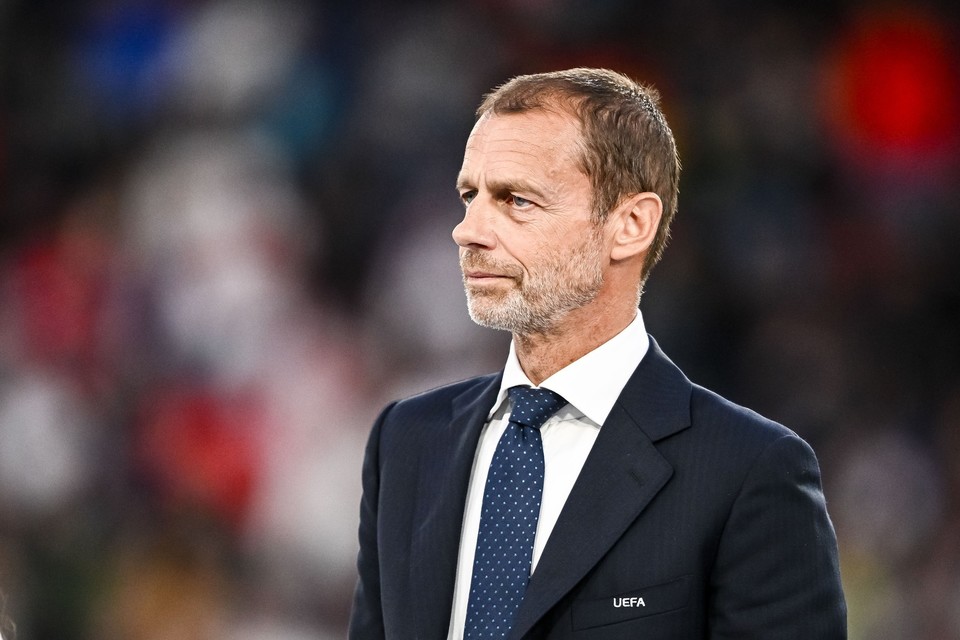TOO SOON TO SAY: The Captain of the Maple Leafs Has No Other Option but to Terminate His Contract Due to an Unforeseen Circumstance
In the ever-dynamic world of professional sports, the narratives surrounding players can change almost overnight. For the Toronto Maple Leafs and their captain, John Tavares, the current climate brings about questions that may seem premature, but they’re nonetheless vital to consider. As the Maple Leafs strive for playoff success, the possibility of Tavares needing to terminate his contract due to unforeseen circumstances is a conversation worth exploring.
Tavares joined the Maple Leafs in 2018, fulfilling a lifelong dream of playing for the franchise he grew up supporting. His arrival was met with tremendous enthusiasm and hope, as he brought with him not only skill but also an impressive resume, including a history of consistent offensive production and leadership qualities. However, as the seasons progress, both the team and Tavares himself face challenges that could impact their futures in ways no one anticipated.
One of the most significant factors influencing Tavares’s future with the team is the increasing scrutiny surrounding player performance and health. In recent seasons, the physical toll of a grueling NHL schedule has raised questions about the long-term viability of many players. Tavares, despite his commitment and dedication, has had his share of injuries, including a severe concussion during the 2021 playoffs that forced him to miss significant time. While he has since returned to form, the lingering effects of injuries can weigh heavily on a player’s career trajectory.
In addition to health concerns, the financial landscape of the NHL is changing. With salary caps tightening and the rising costs of maintaining a competitive roster, teams must make difficult decisions regarding player contracts. Tavares’s current deal, which carries a hefty cap hit, might become a point of contention as the Maple Leafs navigate their financial future. If the team determines that reallocating funds to younger talent or other positions is necessary for their long-term success, Tavares’s contract could be viewed as a liability.
Furthermore, the evolving dynamics within the Maple Leafs’ locker room play a crucial role. The emergence of younger players such as Auston Matthews, Mitch Marner, and William Nylander has shifted the team’s core. These players represent a new era of Maple Leafs hockey, full of potential and energy. As they continue to develop and become leaders in their own right, the question arises: can Tavares effectively lead a team that is progressively being built around a younger generation? If the answer is uncertain, the organization may consider restructuring their roster, which could involve parting ways with veteran players.
Another factor to consider is Tavares’s personal aspirations. As a player who has always aimed for greatness, the pressure to win a Stanley Cup can be overwhelming. If the team continues to fall short in the playoffs, Tavares might face an internal conflict. Would he want to stay with the Maple Leafs, a team that holds so much personal significance, or seek opportunities elsewhere to chase that elusive championship? Such decisions are often driven by a player’s desire to leave a legacy, and for Tavares, that legacy is tied to his performance on the ice and the ultimate goal of winning.
Moreover, the Maple Leafs have a passionate fan base that expects results. The scrutiny that comes with being the captain of such a storied franchise can be intense. If Tavares’s performance doesn’t align with the high expectations set by fans and media alike, the pressure could lead to calls for change. The organization must consider whether Tavares can fulfill the role of captain and leader in the face of such scrutiny, and if not, whether it’s time for both parties to part ways.
There is also the impact of coaching and management strategies. If the current coaching staff and management team shift their focus or philosophy, they might seek a different type of player to fit their vision. Tavares, while immensely talented, may not fit into a future strategy that emphasizes speed and youth. This could lead to a reevaluation of his position within the team.
While it may feel premature to discuss the termination of Tavares’s contract, it’s essential to analyze the various elements at play. His history, talent, and leadership are invaluable assets to the Maple Leafs, yet the realities of professional sports require a forward-thinking approach. The combination of player health, financial constraints, team dynamics, and personal aspirations all contribute to a narrative that could lead to significant changes.
In conclusion, while the conversation surrounding John Tavares and the potential termination of his contract may be early, it is not without merit. The intersection of personal, professional, and organizational factors will shape the trajectory of both Tavares and the Maple Leafs. As fans, we must remain observant and engaged with the unfolding story, understanding that in sports, change is often just around the corner. Whether Tavares remains a cornerstone of the Maple Leafs or becomes part of a new chapter in the franchise’s history, the outcome will undoubtedly reflect the intricate dance of loyalty, ambition, and the relentless pursuit of excellence that defines the world of hockey.








Leave a Reply